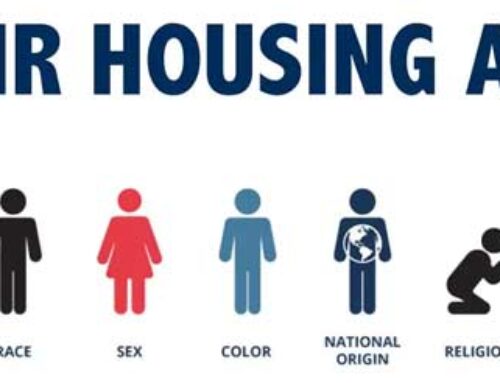By Janet Siroto
Jan 18, 2022

If you’re one of those lucky people who own a home in a “hot” area, it’s a pretty sweet feeling. You made a good real estate call. If you decide to sell, all signs point to it being an easy and lucrative transaction. It’s all enough to make a person do a Snoopy-style happy dance.
But lately, there’s a downside to being in a desirable property: an avalanche of unsolicited offers.
When eager buyers go too far
Many homeowners are reporting that these “sell me your house!” requests are pouring in via phone calls and text messages, even if their number is unlisted. Owners are finding letters and notes left in their mailbox or slipped beneath their front door; the words “all cash!” often figure prominently. Residents even report that they’re receiving postcards with photos of their home and the words “I’m ready to buy your house!” Yup, someone stood outside and took a picture without their knowing it. Creepy!
Occasionally, these inquiries come from people who actually want to live in your home very, very much. Maybe they love the school district or your charming Belgian block driveway. By personally connecting with you, they might catch you at the right moment if you’re pondering a move. It’s how some people get a dream home when housing stock is in short supply.
More often, though, these inquiries are from real estate investors looking to flip your house for the largest possible profit.
Understand who is behind the outreach
“This is actually a big problem in Nashville right now,” says Cara Berkeley, creator of the money blog Penny Polly. “Because the local real estate market has experienced record-growth in property values and sales, there are a lot of investors on the market looking to shake out their next fix-and-flip. Since there is so much money to be made, they are very aggressive in their search for new homes to purchase—calling, leaving notes on doors, and even texting.”
So who are these people, exactly? While some may actually intend to renovate the house then sell it, others are just hoping to buy low and sell high to make some quick, easy, effort-free cash.
“Most of these offers come from what the industry calls ‘wholesalers’ or ‘bird dogs,’” explains Bruce Ailion, a Realtor Emeritus with Re/Max Town & Country. “These are typically people who do not have the money to close on the home. They only seek to get it under contract and quickly sell it to someone else for more, never using any of their [own] money.”
These are the kind of tactics being taught in such courses that claim to help participants “become a real estate millionaire overnight!” The people who call your home are also likely to be the ones posting “we buy houses” flyers on power poles.
“Title flipping for profit is one of their techniques,” Ailion explains. “A title flip will net a profit from a few thousand dollars to over a hundred thousand.”
Are these offers legit or a scam?
While these offers may well be legal, not everyone views them as fair. They dangle the lure of a quick and convenient transaction, with cash landing in your bank account ASAP.
However, “It would be very rare for one of these unsolicited buyers to offer a fair price for a property,” cautions Ailion. “Therefore, buyers should be very wary of these offers.” In fact, homeowners receiving these solicitations sometimes report being offered no more than 70% of their home’s market value.
The “bird dogs” behind these letters typically hope to find someone with a level of desperation or ignorance about the property’s actual value. Those are the ones who actually bite.
Granted, there are rare situations where this kind of offer might make sense.
Say your home needs major work done. (Perhaps the foundation is cracked or the roof is on its last legs.) Maybe you’d rather just get out of your house fast. This title-flipping scenario could save the day.
But for the vast majority of people, “It’s important to work with a reliable, knowledgeable real estate agent,” says Tami Bonnell, co-chair of EXIT Realty Corporate International.
That person can tell you the true value of your home so you don’t lose a chunk of money, says Bonnell. “They can also respond to these inquiries on your behalf.”
Coping with the invasion of privacy
Let’s not overlook how uncomfortable it can be to receive these unsolicited offers. It’s an annoying intrusion and makes some people feel as if they’re being stalked.
“I received a call myself last week, and when I asked how they got my number, they said they found it attached to my parcel information,” says Berkeley, referring to the online databases that show who owns which lot. “I honestly don’t know how to avoid the privacy issue outside of blocking each individual call so they can’t reach out again.”
Bonnell says homeowners could post “private property,” “no trespassing,” or “no solicitation” signs. Still, the prospector will probably resort to contacting the homeowner by mail or email (unsubscribe if possible).
“If they reach out by phone, most services allow blocking of unwanted callers,” she notes. Use it!






